Dear readers, With the launch of e-newsletter CUHK in Focus, CUHKUPDates has retired and this site will no longer be updated. To stay abreast of the University’s latest news, please go to https://focus.cuhk.edu.hk. Thank you.
Duty Always Comes First
EMO's 34 hours in the eye of the storm
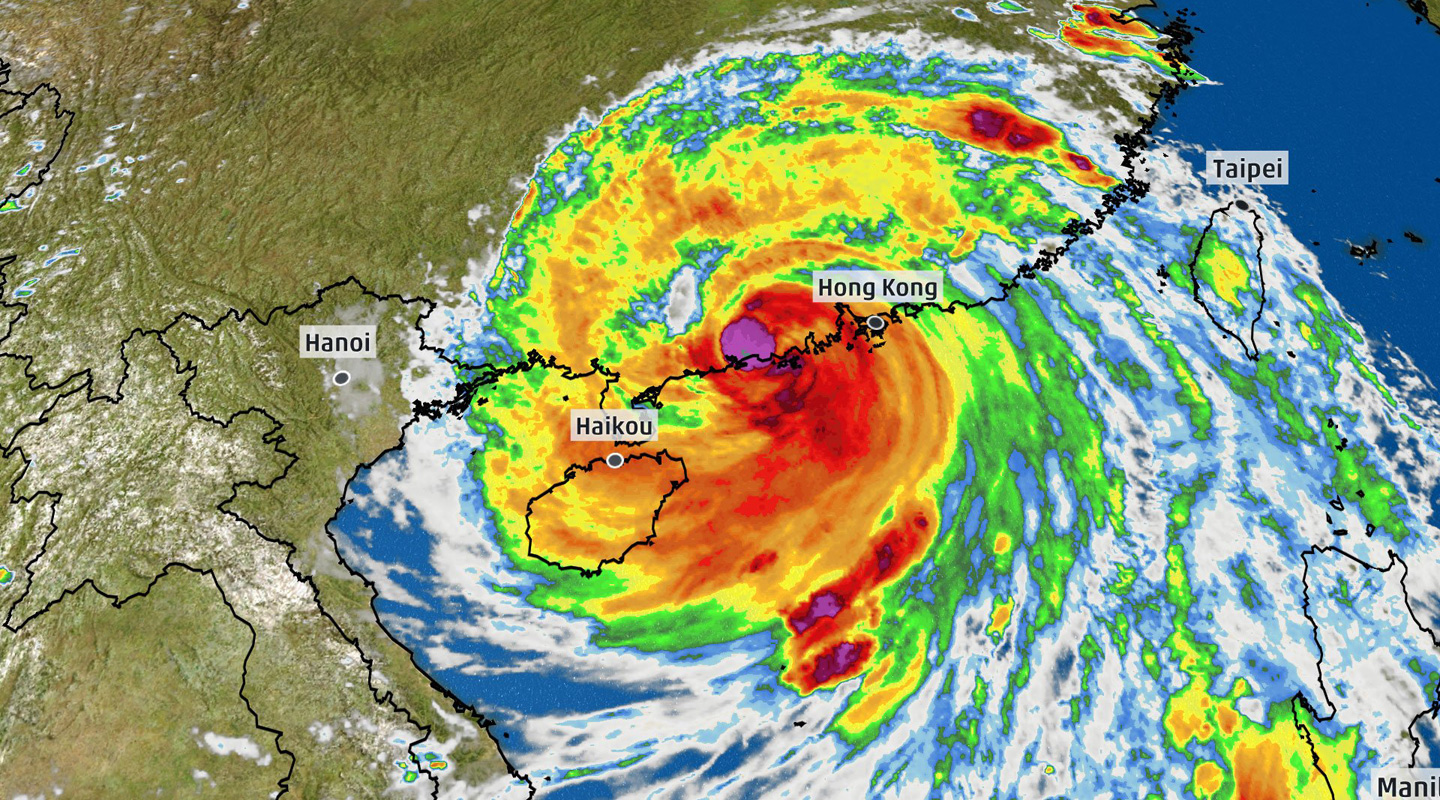
With its skyscraper-shaking and tree-felling blasts, super-typhoon Mangkhut taught Hong Kong a lesson on how extreme weathers could get in the age of climate change. The University suspended class and work on the next school day (17 September) after the storm. But the Estates Management Office (EMO) staff who voluntarily enlisted in the Typhoon Squad did not cease on the day but had actually begun well before the typhoon struck.
On Saturday evening (15 September) before typhoon signal number 8 was hoisted, 27 staff members were at the command centre of EMO. They were monitoring the typhoon situation on campus and attending to calls from campus residents for help. The standby staff had been on duty for 34 hours from late Saturday to Monday morning and received over 90 requests, mostly for repairing shattered glasses and broken doors. Late on Sunday, the squad began campus inspection as soon as the storm had subsided and found broken branches and trunks everywhere, clogging the major roads on campus.
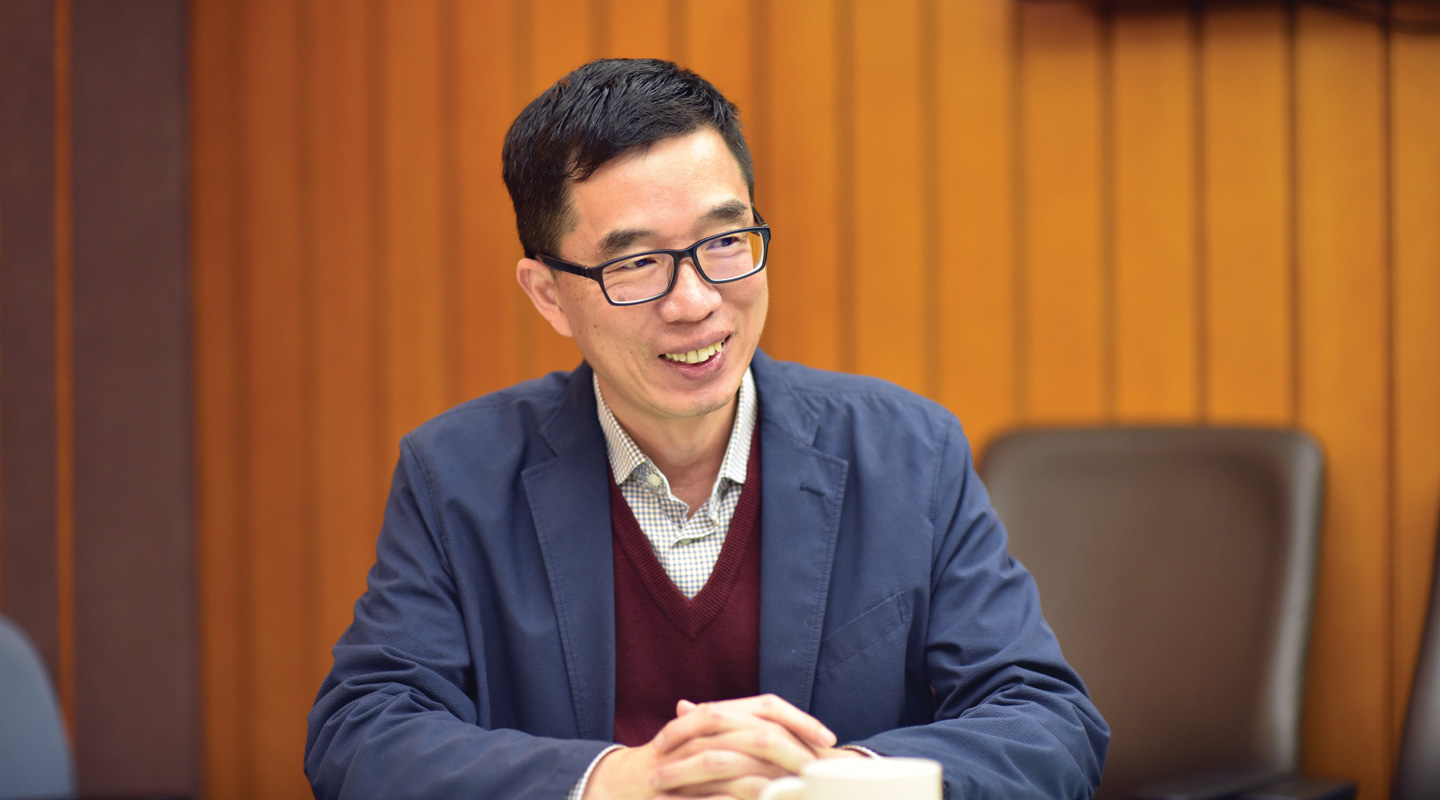
Mr. Edmond Lam, Director of EMO, said, ‘Clearing the major roads was top priority under the circumstances. Our aim was to restore our campus to normal for our staff and students to work and study. Many of our colleagues spent hours and hours on sawing and removing felled trees. Several chain saws had to be discarded from overuse. I have never seen this before.’ The Landscaping Section had booked a grab-mounted truck and a crane a few days earlier for removing fell and hanging branches which could be dangerous to passers-by. Their prescience proved to be critical to the team’s speedy follow-up work as such vehicles were in short supply from a territory-wide surge in demand after the storm.
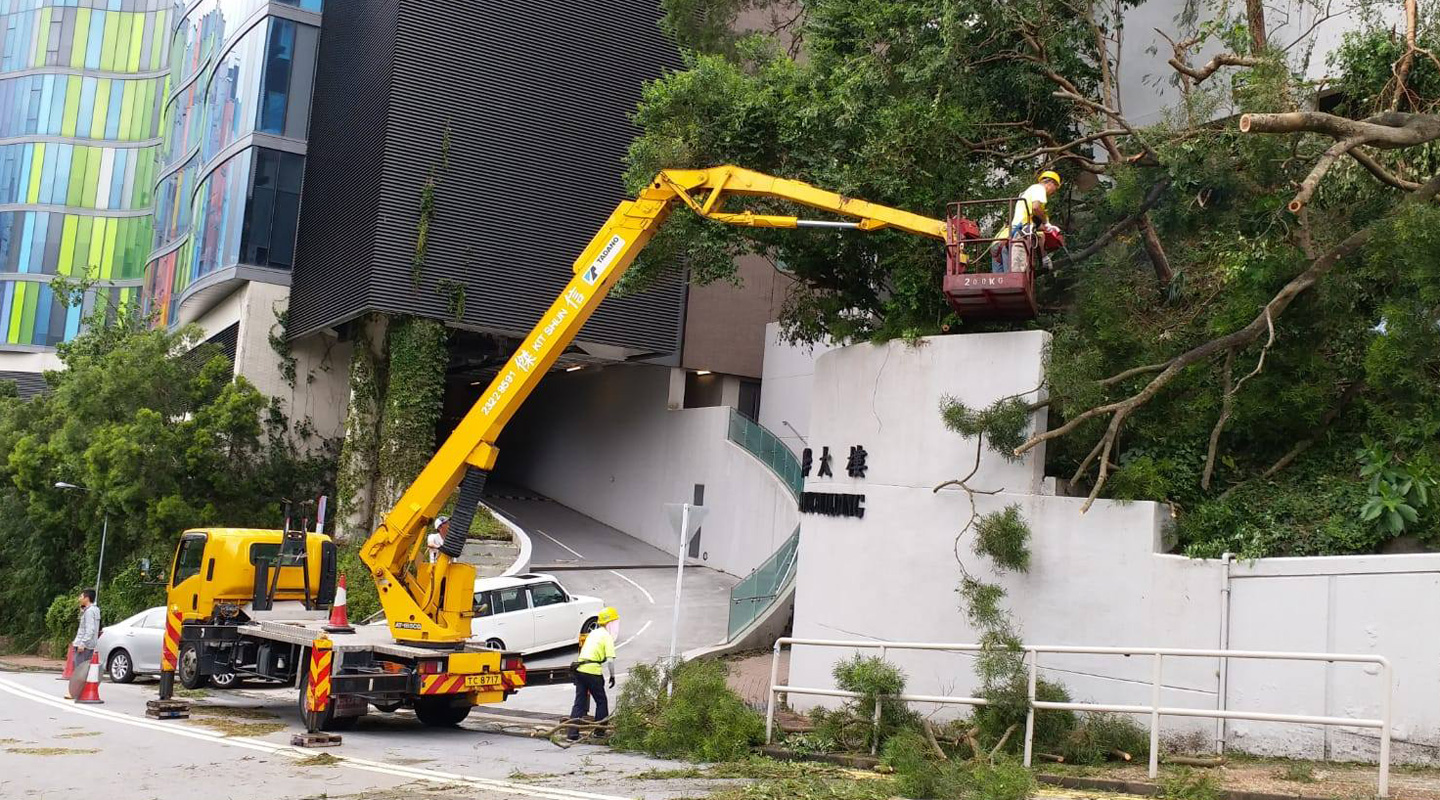
While other staff and students stayed home on 17 September, over two thirds of EMO’s 400-strong staff overcame great obstacles to come back to campus. Some had to walk from Ma On Shan to campus. EMO’s preventative measures also played a part in the campus’s speedy return to normal. Before the storm, more manpower was deployed to clear the ditches and examine the air-conditioning and electrical systems, and contractors were reminded to reinforce the scaffoldings. Credit must also go to other conscientious colleagues: drivers of the Transport Office helped to restore the bus stops; security officers of the Security Office cleared the major roads and directed traffic especially for the emergency vehicles; some students even volunteered their service in clearing the debris.
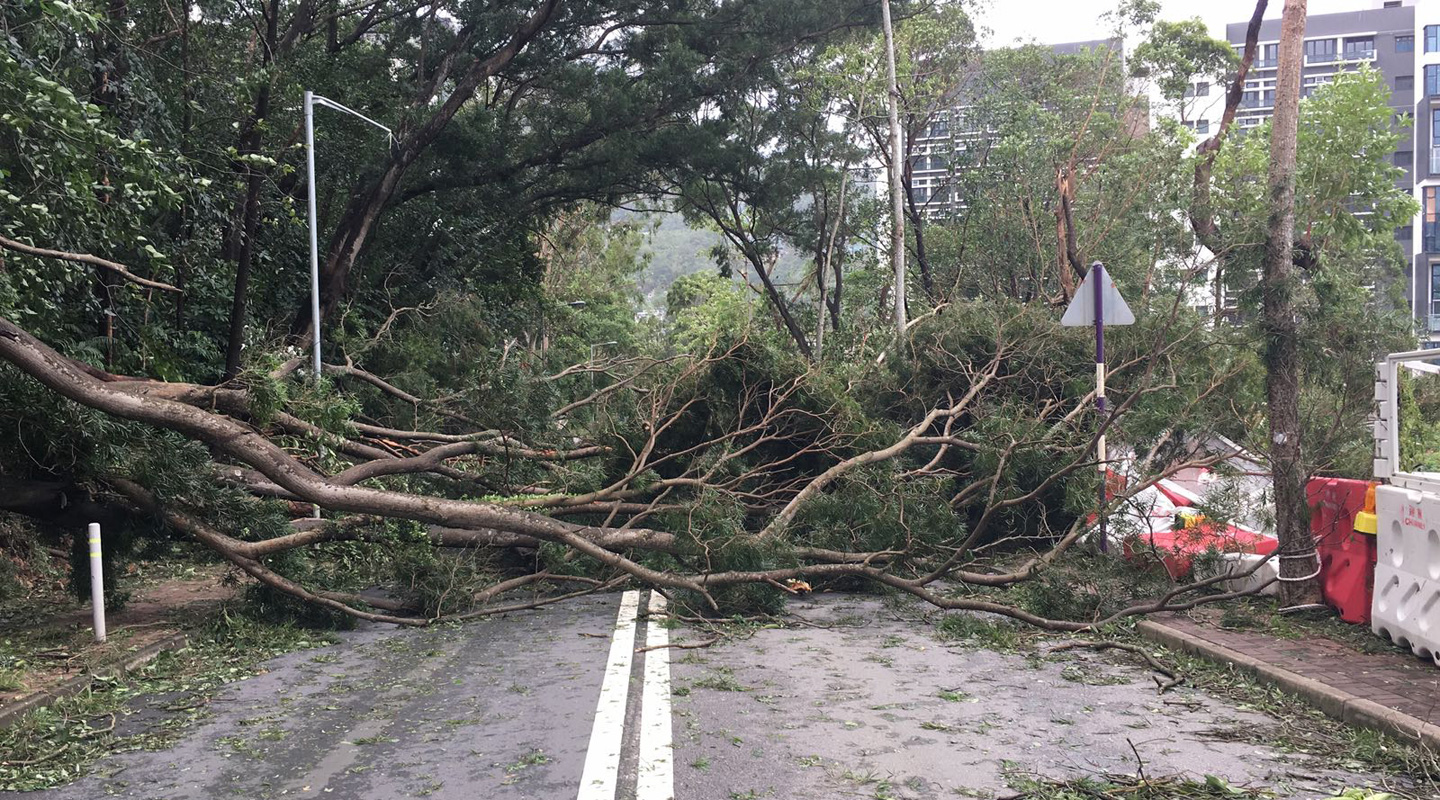
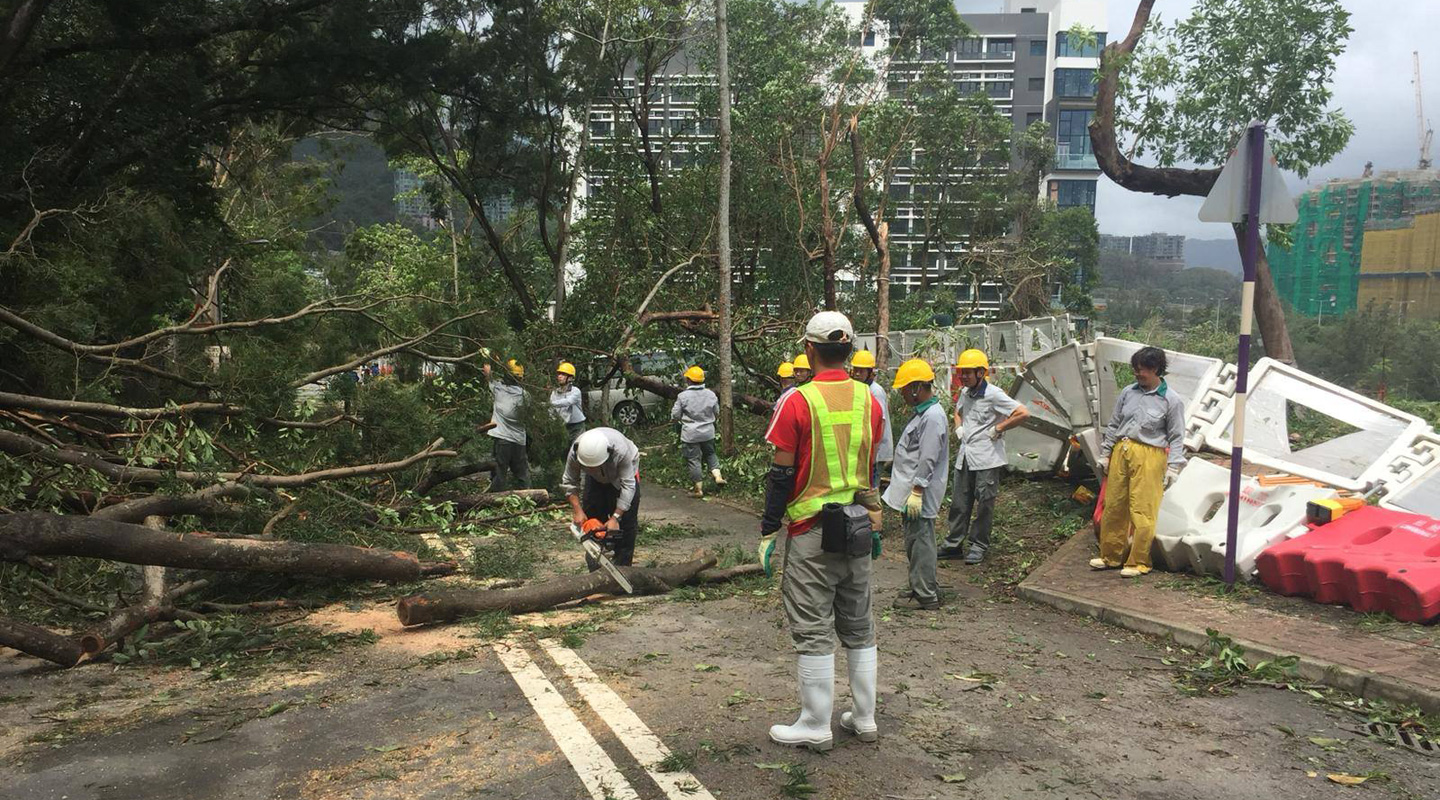
Global warming will make extreme weather conditions more frequent in the foreseeable future. In addition to relying upon the dedication and professionalism of EMO and other colleagues, we must also adapt to a sustainable way of life for the sustenance of the Earth.
J. Lau
Editors’ Note: As EMO colleagues had still been heavily occupied for some time with follow-up actions in the Mangkhut aftermath, CUHK Newsletter had been putting off asking for their stories until recently.
This article was originally published in No. 529/530, Newsletter in Dec 2018.